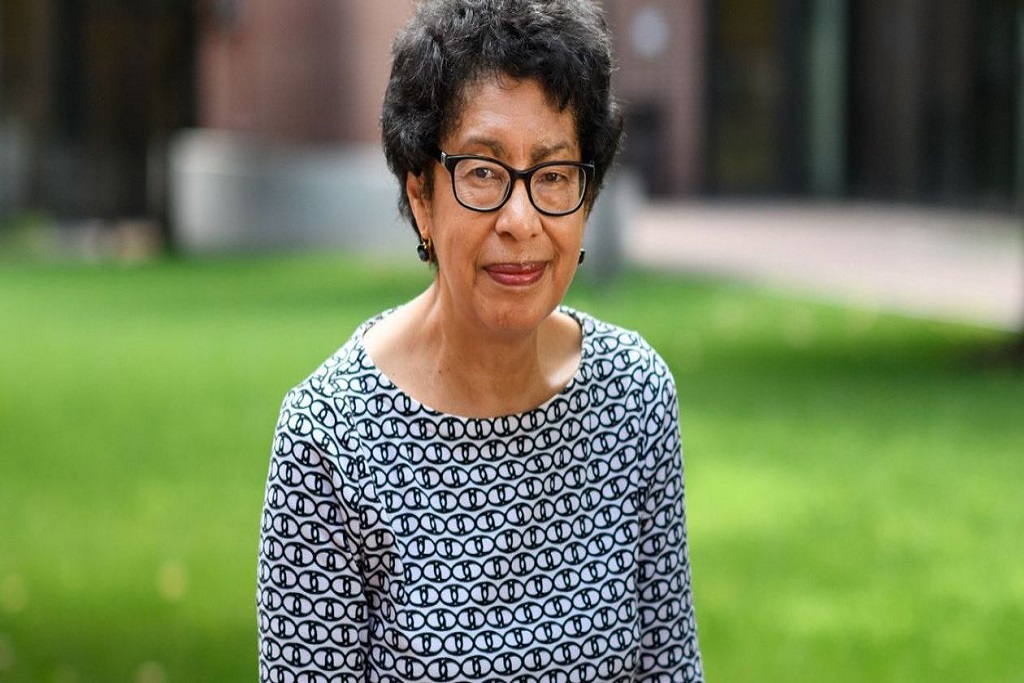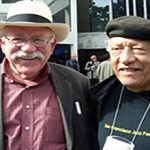Some time ago, a book entitled “The professors” (The 101 Most Dangerous Academics in America) written by “David Horowitz” was published in the United States. The subject of this book is the introduction of one hundred and one university professors whose crime was to speak about the Holocaust and the Jews in their classrooms and books. In addition to publishing this book, professors at other universities have been warned not to use their work because these people have crossed the red line. In general, when freedom is unlimited, it creates problems that will ultimately limit it. The following text introduces “Professor Regina Austin”, one of the one hundred and one professors discussed by the author of the book.
Professor Regina Austin
University of Pennsylvania
— William A. Schnader Professor of Law, University of Pennsylvania
— Believes black community should accommodate criminal behavior and find a “good middle ground between straightness and more extreme forms of lawbreaking.”
— “Law is useful as a supplement to activism.”
Regina Austin is the William Schnader Professor of Law at the University of Pennsylvania, a feminist and “a leading authority on economic discrimination and minority legal feminism,” according to her university website. Professor Austin is a proponent of Critical Race Theory, a school of law that combines Marxist and racial perspectives. Pioneered by racial ideologue Derrick Bell, Critical Race Theory regards white racism as a permanent structural dimension of American society. Critical race theorists advocate compensatory, race-based preferences for African Americans in employment, education, and—in Professor Austin’s case—criminal justice.
Long an outspoken advocate of racial separatism, Professor Austin has made race/class/gender conflict the centerpiece of her courses, which view legal issues through the narrow prism of identity politics. Characteristic of Professor Austin’s approach is her popular seminar, “Advanced Torts: Intentional Torts and the Intersection of Race, Gender & Class.” The course promises to teach students to analyze legal disputes “from the perspective of groups of subordinate status,” a category that Professor Austin subdivides into “race, ethnicity, gender, sexual orientation, age, religion, or class.” The intention of “Advanced Torts” is to encourage students, especially minority students, to regard the law not as a body of rules applicable equally to all citizens but rather as a malleable concept, subordinate to one’s perceived identity interests. If the testimony of Austin’s former students is any measure, the course has been successful on this score. One student who took “Advanced Torts” enthused that it “took a different, more cultural look at Torts,” one that “resonated personally with me especially as a Latina.”
Central to Professor Austin’s “Advanced Torts” course is her claim that minority status confers the privilege of interpreting the law as one pleases. In her published articles Professor Austin has exhorted the black community to reject the distinction between lawful and unlawful ctivity, regarding this distinction as one of the imposed strictures of an oppressive white society. Accordingly, Professor Austin pours scorn on such “traditional values” as “conformity to the law,” which she insists will “inten-sif [y] divisions within the black community.” Austin has called on African Americans to engage in outright lawbreaking, which she calls “hustling,” but which in fact amounts to any number of acts of thievery licensed by Professor Austin’s demands for social justice. Thus, “clerks in stores [who] cut their friends a break on merchandise, and pilfering employees [who] spread their contraband around the neighborhood,” are encouraged by Professor Austin to occupy the “good middle ground between straightness and more extreme forms of lawbreaking.”
Asked in a 1999 interview to describe how she views her role as a legal scholar, Professor Austin answered that it “should start with the premise that black people are at the center of the universe and go on from there.” This view, Professor Austin explained, was the “common characteristic of the body of scholarship that is classified as critical race studies,” which she has long promulgated in her academic writings. “I rely fairly heavily on culture as being the base on which you begin to build so that your authorities come from the culture and not outside of the culture,” Professor Austin explained. So extreme is Professor Austin’s insistence on the primacy of culture over law that she claims minority communities require an “alternative source of [legal] authority.”
Still another salient feature of Professor Austin’s courses is their rejection of any pretense of scholarly objectivity, in favor of an aggressively political agenda. Such is the case with her seminar, “Environmental Racism.” The seminar’s official description discloses that it “will explore the problems and principles that fuel the environmental justice movement.” Among the political agendas of the course listed by Professor Austin are “supporting the environmental racism claim” and championing “environmental/occupational health issues such as pesticide poisoning and sweatshop conditions.” Students are to take trips to sites “which have been impacted by environmental injustice.”
The powerful Marxist core of Critical Race Theory surfaces in Professor Austin’s lament at the way “resources are removed from access by the market,” resulting in “lesser quality environments” for minorities and the poor. Professor Austin’s solution is to ensure that the privatization of wealth is “unraveled in a way that produces privatization or quasi-privatization for people who are the least well off.” Toward this end, Professor Austin sees “law [as] useful as a supplement to activism. . . . I’m an institutional actor.”
Professor Austin concedes that her activist teaching style and preference for political opinion over legal doctrine has not always been well received. Asked whether she had encountered resistance to her approach, Professor Austin allowed that she had, and proceeded to enumerate some of the grievances raised by disaffected students: “Much too liberal, much too loose, not doctrinal, policy is empty, it’s all very confusing.”
Research: Jacob Laksin










